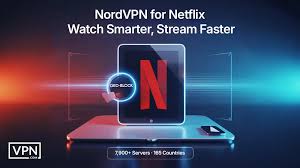Upgrading efficiency is a top priority for small businesses in the U.S., and software technology gives a wealth of solutions to achieve this goal. From cloud computing and automation to cybersecurity and mobile solutions, the right tech strategies can help small businesses streamline operations, reduce costs, and improve overall performance. By implementing these ten tech strategies, small businesses can position themselves for success in a competitive market, ensuring they operate at peak efficiency.
Implement Cloud Computing Solutions:
One of the most effective ways to enhance efficiency in a small business is by adopting cloud computing solutions. Cloud-based tools allow businesses to store data, run applications, and access information from anywhere with an internet connection. This eliminates the need for expensive on-site servers and IT infrastructure, which can be costly to maintain.
Additionally, cloud computing enables real-time collaboration among team members, regardless of their location. Whether it’s sharing files, working on documents simultaneously, or managing projects, cloud-based tools like Google Workspace or Microsoft 365 make it easier for teams to work together efficiently.
Automate Routine Tasks with Software:
Automation is a game-changer for small businesses looking to boost efficiency. By automating routine tasks, such as invoicing, payroll, and email marketing, businesses can save time and reduce the risk of human error. This frees up valuable time for employees to focus on more strategic activities that drive growth.
Tools like QuickBooks for accounting, Zapier for workflow automation, and Mailchimp for email marketing can significantly reduce the time spent on administrative tasks. With automation, small businesses can operate more smoothly and efficiently, without the need for additional staff.
Use Customer Relationship Management (CRM) Software:
Customer relationship management (CRM) software is essential for small businesses that want to streamline their sales and customer service processes. A good CRM system allows businesses to track customer interactions, manage leads, and monitor sales pipelines in one central location.
By using CRM software, small businesses can ensure that no customer inquiry or lead falls through the cracks. This not only improves customer satisfaction but also boosts sales efficiency by helping sales teams prioritize their efforts. Popular CRM solutions like Salesforce, HubSpot, and Zoho CRM are tailored to meet the needs of small businesses.
Leverage Project Management Tools:
Managing multiple projects and tasks can be challenging, especially for small businesses with limited resources. Project management tools can help businesses stay organized, track progress, and meet deadlines more effectively.
Tools like Trello, Asana, and Monday.com offer intuitive interfaces that allow teams to create task lists, assign responsibilities, and monitor project timelines. With these tools, small businesses can ensure that projects are completed on time and within budget, leading to increased efficiency and productivity.
Invest in Cybersecurity Solutions:
In an increasingly digital world, cybersecurity is a critical concern for small businesses. A data breach or cyberattack can have devastating consequences, including financial losses and damage to reputation. Investing in cybersecurity solutions is essential for protecting sensitive information and maintaining operational efficiency.
Small businesses should consider implementing firewalls, antivirus software, and encryption tools to safeguard their data. Additionally, employee training on cybersecurity best practices can help prevent phishing attacks and other common threats. By prioritizing cybersecurity, small businesses can avoid costly disruptions and maintain smooth operations.
Utilize Business Intelligence (BI) Tools:
Business intelligence (BI) tools provide small businesses with valuable insights into their operations, customers, and market trends. By analyzing data, BI tools help businesses make informed decisions that drive efficiency and growth.
With BI tools like Tableau, Power BI, and Google Data Studio, small businesses can visualize data, identify patterns, and track key performance indicators (KPIs). This enables them to make data-driven decisions that optimize processes, reduce waste, and improve overall efficiency.
Adopt Mobile Solutions:
As the workforce becomes increasingly mobile, small businesses must adapt by adopting mobile solutions. Mobile apps and tools allow employees to work remotely, access company data, and communicate with team members while on the go.
By enabling remote work, mobile solutions can increase employee productivity and flexibility. Tools like Slack for team communication, Zoom for video conferencing, and Google Drive for file sharing make it easier for employees to stay connected and productive, no matter where they are.
Optimize Your Website and Digital Presence:
In today’s digital age, a strong online presence is crucial for small businesses. An optimized website not only attracts more visitors but also ensures a smooth user experience, leading to higher conversion rates.
Small businesses should invest in a responsive website design that works seamlessly on all devices, including smartphones and tablets. Additionally, optimizing the website for search engines (SEO) can help drive organic traffic and increase visibility. Tools like Google Analytics and SEMrush can provide valuable insights into website performance and help identify areas for improvement.
Embrace E-Commerce and Online Payment Solutions:
For small businesses that sell products or services, embracing e-commerce and online payment solutions can significantly boost efficiency. An e-commerce platform allows businesses to reach a wider audience, streamline the sales process, and reduce the overhead costs associated with physical storefronts.
Platforms like Shopify, WooCommerce, and BigCommerce offer easy-to-use solutions for setting up an online store. Additionally, integrating online payment options like PayPal, Stripe, or Square makes it easier for customers to make purchases, leading to higher sales and increased efficiency.
Foster a Culture of Continuous Improvement:
Finally, one of the most effective tech strategies for boosting efficiency in a small business is fostering a culture of continuous improvement. Encourage employees to embrace new technologies, learn new skills, and seek out ways to optimize processes.
Regularly reviewing and updating your tech stack is essential for staying competitive and efficient. By keeping up with the latest technological advancements, small businesses can ensure they are using the best tools and strategies to maximize productivity.
Conclusion:
Since the year 2024, small businesses in the U.S. face unique challenges in staying competitive. While larger corporations have vast resources, small businesses must be more resourceful to maximize efficiency. Thankfully, technology offers a range of tools and strategies that can help small businesses streamline their operations, reduce costs, and increase productivity. In this article, we’ll explore ten of the best tech strategies for small businesses in the U.S. to boost efficiency.



































